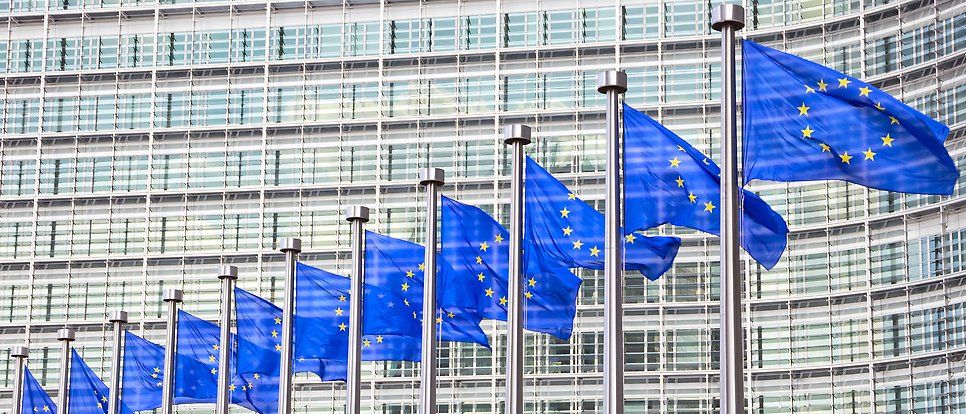Safeguarding democracy important as extremist parties grow in EU

More right-wing populist parties in the EU will lead to regression on a range of issues, including gender equality, multiculturalism and environmental protection, according to Anthoula Malkopoulou. Photo: Getty Images
Right-wing populist parties are predicted to make gains in this summer’s EU elections. Political scientist Anthoula Malkopoulou believes it is high time to take a closer look at democratic structures and try to make them more robust. “It is currently unlikely that we would have a majority of illiberal populist parties in the European Parliament, but we need to start preparing for such a possibility in the future.”

Anthoula Malkopoulou, Docent in Political Theory. Photo: Sameer Khan
The far-right is expected to gain more seats after the European elections in June. Right-wing populist parties have already seen strong showings in Hungary and France, but are now also predicted to gain ground in countries such as Italy, Czechia, Spain and Germany.
“Germany, the largest and most influential player in the EU, could for the first time send more MEPs from the far right than from the Social Democrats or the Greens,” notes Malkopoulou, Docent in Political Theory at the Department of Government.
“Germany for example which is the biggest and most powerful player in the EU, could for the first time send more far-right MEPs to the EP than Social Democratic or Green Party MEPs.”
Indirect threat to democracy
Malkopoulou believes that this shift to the right in the European Parliament will lead to more culturally conservative policies. One potential scenario is that we will see a regression in terms of gender equality and LGBT rights, as well as fewer measures promoting multiculturalism and environmental protection.
Although democracy could be considered under threat when issues related to the status of minority groups are de-prioritised or dismantled altogether, Malkopoulou does not believe that democratic institutions are in direct danger yet.
“The focus of these far-right parties is on opposing progressive values rather than damaging political institutions as such.”
She also emphasises that the EU has a history of acting against nations that do not respect fundamental democratic rights. When the governments of Poland and Hungary took steps considered undemocratic a few years ago, the EU institutions launched what is known as the Article 7 procedure against both countries.
“The EU has sent a strong message with its attempt to suspend funding and membership rights for Hungary and Poland because of their interference in domestic democratic institutions.”
Writing book on democratic self-defence
What response is required to potential threats from anti-democratic forces? Malkopoulou is currently investigating this issue in a new book on what has been deemed “democratic self-defence”. In it she discusses different strategies that states and individuals use to protect themselves against attacks, for example from extremist parties.
Among other topics, Malkopoulou addresses the militant stance of excluding anti-democratic actors. Examples of this approach can be seen in Germany, where there are laws permitting extremist parties to be banned.
There is also a contrasting approach, based on the idea that everyone has the right to make their voice heard. The result of this tolerant attitude was seen in Greece, for example, where the neo-Nazi Golden Dawn party was allowed to sit in parliament.
Neither of these two methods works optimally, notes Malkopoulou.
“The tolerant approach, working with right-wing populists, may lead them to act more moderately.” At the same time, it provides them with a larger platform to spread their ideas, says Malkopoulou, before continuing:
“At least we know what doesn't work, and that is to exclude the extremist actors. This may send a strong symbolic message, but illiberal parties may return with smarter techniques to hide their regressive and authoritarian agendas. This was the case with Turkey’s Erdogan, whose party was initially banned only to return with a different mantle and dominate power for almost two decades.”
A crisis worth taking seriously
The fact that the far-right is now expected to increase its power in the EU poses a long-term threat to democracy and should be seen as a warning sign, in Malkopoulou’s view.
“To some extent, it is a minor crisis that so many far-right parties will enter the European Parliament. It is high time the EU thought about how democratic it is and how democratic infrastructures can be made more robust,” she says, before continuing:
“At the moment, a majority of illiberal-populist parties in the European Parliament is unlikely, but we need to start preparing for such a possibility in the future.”
Sandra Gunnarsson
Facts: Democratic self-defence
In her forthcoming book, Malkopoulou addresses three different types of democratic self-defence: militant, tolerant and social. The first method is to exclude anti-democratic actors. Examples of the militant approach can be seen in Germany, where there are laws permitting extremist parties to be banned.
Tolerant self-defence works on the opposite principle and considers everyone to have the right to make their voice heard. The result of this attitude was seen in Greece, for example, where the neo-Nazi Golden Dawn party was allowed to sit in parliament.
Social self-defence is based on the idea that extremist parties and movements are born out of social inequalities. Thus, this approach focuses on creating social reforms to reduce inequalities in society. The construction of the welfare state in the Nordic countries before the Second World War is an example of this approach.
